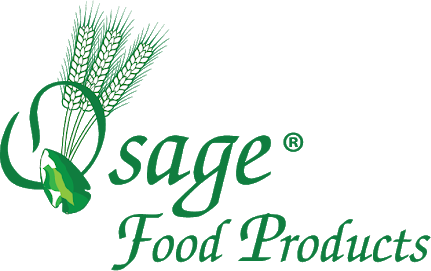Food industry professionals have been aware of the rise in popularity of plant-based food and beverage products for years. Its market share has grown to the point where the plant-based food category is becoming less an alternate nutrition choice and more of a mainstream option.
With so many options currently available, vegan consumers, extra cautious flexitarians, and plant-curious carnivores could find something to please their palate. This interest drove plant-based meat sales up to $7.4 billion in the US alone, a six percent jump from 2020, which saw an increase of 27 percent over 2019.
Although the interest in plant-based food isn’t new, its dizzying ascent has caused the industry to sit up and take notice over the last two years. Let’s look at some reasons why plant-based products are transforming our industry.
A Change In Food Priorities
For decades, many people focused on taste, convenience, and price points to help determine what kind of food they took home from the grocery store or ordered in a restaurant. Although nutrition often played a role in the decision-making, it wasn’t always a final deciding factor – until recently.
The COVID-19 pandemic prompted people to think more about health and wellness, which caused a rethinking of the type of food they eat. There is a perception among many consumers, supported by opinion pieces that started appearing in the media, that going meat-free was an excellent way of boosting one’s immune system to protect their health.
As a result, plant-based products turned from a sprouting industry into a full-grown, in-demand commodity. Although dairy protein is proven to have a higher nutritional value than plant-based, the consumer shift toward the latter is undeniable.
Although we’re continuing to move into a post-pandemic world, health and wellness are still prime concerns for consumers who want protection against future viruses. Consumers who rely on plant-based products to support their health objectives might not switch back to animal products anytime soon, creating sustainability for the foreseeable future.
Adjusting The Household Budget Against Inflation
The current inflation crisis has caught the attention of families throughout the west. Inflation has significantly impacted the price of meat and other animal-sourced products, including milk and cheese.
For many consumers, plant-based meat and dairy alternatives offer many of the same nutritional benefits as their animal-sourced counterparts at a lower cost. With modern flavor technology replicating virtually any flavor profile, families have more plant-based options than ever before.
Heavy Media Exposure
If your customers are connected to any media, they’ve likely seen a rise in messaging about the availability of plant-based products in restaurants and grocery aisles. Even fast-food restaurants such as McDonald’s have started rushing meatless burgers onto their menus and heavily promoting them through the media.
The goal here is twofold: to show the faithful that the brand has embraced the plant-based trend and convert the skeptical into giving it a try. It’s also an effective way to boost their brand image as one in touch with current demands. Either way, the media has been very effective in helping put plant-based food products in the spotlight.
Environmental And Animal Welfare Concerns
There’s a perception that plant-based food production is easier on the environment and more sustainable than animal farming. Ongoing concerns about climate change have also prompted many consumers to reduce the number of animal products in their diet.
However, the dairy industry has made great strides to adopt sustainable practices. It’s estimated that dairy farms contribute less than 2 percent of greenhouse gas (GHG) emissions, with a goal of net-zero GHG emissions by 2050.
The American dairy industry has also taken enhanced animal welfare measures to ensure that cows are comfortable, well-fed, and can move around freely. Ninety-eight percent of the American milk supply comes from dairy farms enrolled in FARM, an ISO-recognized program developed by farmers and veterinarians that provides high-quality animal care protocols.
Programs like FARM and advancements in technology that help put the dairy industry closer to its 2050 GHG targets help alleviate the public’s environmental and animal welfare concerns and keep dairy products an important source of protein, minerals, and nutrients for food and beverage products.
Get Better Results With Plant-Based Foods Through Agglomeration
OFP Ingredients can help enhance the success of your plant-based food and beverage products with our bulk blending and advanced agglomeration technology.
Agglomeration is the process of creating higher-density particles to improve dispersion and miscibility, giving your customer a superior product experience. Granules formed through agglomeration also generate less dust, reduce waste, and are easier to handle throughout the production, packaging, and shipping processes.
Our agglomeration facility offers complete end-to-end solutions using two Peebles System lines and four double-ribbon blenders, giving you unprecedented scalability for your particular needs. It’s the most cost-effective solution available for virtually any type of plant-based or dairy products, with a customer experience unparalleled in our industry
Contact OFP Ingredients today to learn how our agglomeration process can help increase profits, boost sales, and put your company ahead of your competitors.




